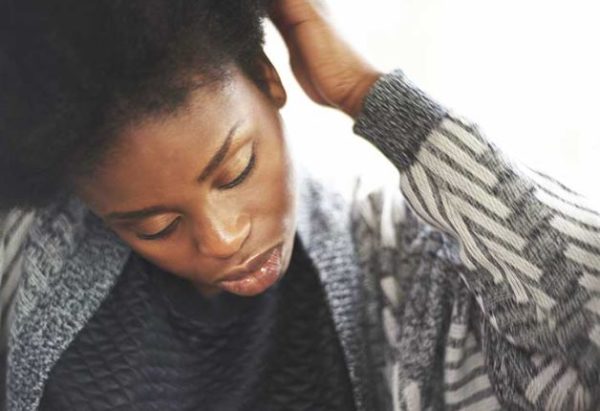Lifestyle
Haircare: 5 ways to care of a sensitive scalp

Scalp sensitivity is scientifically referred to as trichodynia. The term ‘’trichodynia’’ is derived from the Greek words ‘’trichos’’ meaning hair and ‘’odyne’’ meaning pain.
It is characterised by a range of uncomfortable sensations and discomfort on the scalp, including burning, itching, tingling, pain and tenderness.
In a research study called The Prevalence of Sensitive Skin by Miranda A. Farage, published in The National Library Of Medicine, it states that between 60% and 70% of women and between 50% and 60% of men have reported experiencing some degree of sensitive skin.
Scalp sensitivity can manifest in various ways. Some individuals may experience a constant and persistent sensation of discomfort, while others may have intermittent episodes triggered by specific factors.
These triggers can vary from person to person and may include touching the scalp, brushing or combing the hair, exposure to certain hair products, changes in temperature or humidity, and even emotional stress.
The cause? While there may be many, modern lifestyles certainly have a big role to play. From our exposure to pollution and extreme climates to harsh ingredients in our beauty products, allergies, our diets, genetics and hormones may all be to blame.
Sensitivity may show up in many different ways, making it difficult to self-diagnose. Sensitive skin may be red, itchy, flaky, tight, dry, uncomfortable or prone to a stinging or burning sensation (and is easily mistaken for dandruff!).
Usually, when we think of “sensitive skin”, our minds are automatically directed to facial skin. When your scalp is sensitive, simple acts like brushing your hair, washing your hair or styling your hair may be uncomfortable or painful.
Healthy hair requires a healthy scalp, so it’s essential to take extra care of a sensitive scalp to ensure healthy hair growth, strong, shiny hair and, more importantly, comfort.
There are various small changes you can make to your daily routine to treat and soothe a sensitive scalp:
1. Water temperature
Hot water can burn the skin on your scalp, as well as dry it out, leading to a tight feeling and flaking. Be sure to use lukewarm water when washing your hair to protect your scalp.
2. Styling
Heat styling like blow-drying can be very irritating to a sensitive scalp as the hot air can cause dryness and may even scald it. Try to air dry your hair as often as possible, and if you have to blow dry, hold the dryer as far away from your scalp as possible.
3. Be gentle
Applying hydrating and soothing agents, such as aloe vera gel or chamomile-infused scalp treatments, can help alleviate scalp discomfort and reduce inflammation.
Simple acts like brushing or towel-drying can be uncomfortable if you’re too rough or hasty. Take care to be extra gentle when doing anything mechanical to your hair or scalp.
4. Wear a hat
Protect your scalp from sunburn when spending extended time outdoors by wearing a hat, beanie or scarf. Scalp sunburn is very uncomfortable, but for a sensitive scalp, it can be incredibly painful.
5. Choose hair care products wisely
One of the most important things to consider when you have a sensitive scalp is your shampoo and conditioner. Using mild and gentle hair care products that are free from harsh chemicals, fragrances, and irritants can help minimise scalp sensitivity.
Opt for products that are free from potential irritants like sulphates, parabens, fragrances, essential oils and colourants. What is Scalp Sensitivity: Understanding and Treating this condition.
Most hair care products contain fragrances or essential oils to enhance their scent, and while it may improve the user experience, these fragrances may aggravate sensitivity.
In some cases, scalp sensitivity can also be associated with other symptoms such as hair loss, scalp inflammation, scalp redness, and even headaches.
These associated symptoms can further contribute to the discomfort and distress experienced by individuals with scalp sensitivity.
Scalp sensitivity, or trichodynia, can significantly impact an individual’s quality of life. Understanding this condition, its manifestations, and who is most likely to be affected is the first step toward seeking appropriate treatment.
By taking steps to manage triggers, using gentle hair care products, and practising stress management techniques, it is possible to alleviate the discomfort associated with scalp sensitivity.
If symptoms persist or worsen, it is advisable to consult with a healthcare professional for further evaluation and guidance.






